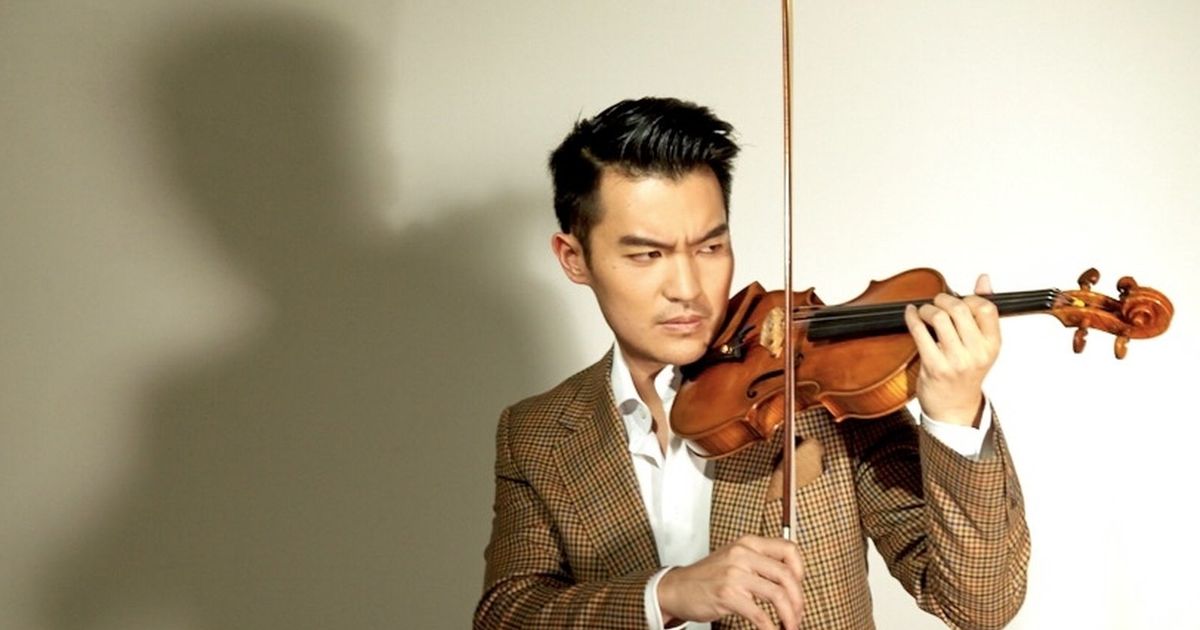[ad_1]
In many ways, Ray Chen’s career has unfolded like that of most other promising young violinists. The Taipei-born Australian prodigy started performing at the age of 4 and entered the prestigious Curtis Institute of Music in Philadelphia at 15; from there he won competitions, recorded a few albums, garnered rave reviews, and joined the standard repertoire concert soloist circuit, playing Mendelssohn in Madison one week and Sibelius in South Bend the following week.
Next stop: Tchaikovsky in Seattle, where Chen, 32, will perform the much-loved Violin Concerto with the Seattle Symphony November 4, 6 and 7. But what sets his career apart is his dedication to technology and social media. The latter is de rigueur these days for any young musician, classical or otherwise, but Chen’s online presence is varied and extensive, his centerpiece his dozens of YouTube videos – from behind-the-scenes clips and discussions with colleagues to masters. classes that encourage interaction: He will discuss a particular violin technique and invite observers to send their own videos to him for comment. (His Youtube channel currently has 204,000 subscribers. A video of Chen playing Vivaldi for a grateful pair of horses has gotten over 12 million views.)
This spirit of interaction even led to a new project: Pocket conservatory, an application developed in collaboration with musician / engineer Rose Xi. During the pandemic gap year, which provided plenty of time for reflection, Chen and Xi realized that fostering a classical music community meant creating not only a listening / ticketing base, but a community. of participants. “We started discussing the future of communities and what it might look like… a future where social media could be built around interests rather than idols,†Chen said in a recent interview.
One aspect of classical music that has perhaps hampered wider appreciation is that (except perhaps for the occasional documentary) we rarely see how the sausage is made; we only see the highly polished finished product on the concert stage. This glamor can be part of the allure of any performing art, but it also creates a mystique of aloofness. Seeing the hard work behind a performance can make it more accessible, less exotic, and less intimidating.
While much of online music education focuses on beginners, Chen and Xi have designed the Pocket Conservatory for musicians of any age in the middle of their studies. Its goals are twofold, Chen says: “to make practice social and bridge the gap between practice and performance.” The app allows musicians to listen to and comment on the workouts of other users. During the Zoom interview, Chen demonstrated on his smartphone: “You can open a live ‘practice room’ where people can come in and listen to you†– he clicked a button and we heard a pianist dutifully tune into a study – “and we can send him a little heart.
Available free of charge for iOS and Android devices, Pocket Conservatory has already attracted 3,000 users (with 1,000 more on the waiting list) in 117 countries.
It’s an innovative overhaul of the concept of practice, turning this once lonely quest (the mythical “10,000 hours of solitary confinement†needed to master an activity, Chen says) into an opportunity for the community. (Not a moment too soon, after a year and a half in which we’re all sick of lonely pursuits.)
This interactivity also provides an informal and rewarding opportunity to get rid of the performance itch that causes people to seek out music in the first place. “Exposing yourself is the magical moment when you share your inner artistic ability with another human being,†Chen explains. “But that’s also where all the problems start: how do you find people? Traditionally, the chance to be heard as a solo performer by someone other than a teacher, or perhaps friends and family, has been widely available only to professionals.
It is “a safe and comfortable space for people at all levels,†Chen explains. “We have kids on the platform and adult learners too,†and the top-notch professors Chen has recruited include members of the Berlin Philharmonic. “People can have a place to gather, meet, train and get excited about what they really love. “
The mastery of the violin that persuaded these high-level musicians to enroll in the Pocket Conservatory will be fully evidenced when Chen performs Tchaikovsky’s concerto, a much-loved test of a violinist’s technique and theatrical flair since his earliest days. premiered in 1878. It will be paired with a very different Russian epic, Shostakovich’s powerfully cinematic Symphony No. 11. Ludovic Morlot returns to the podium of chef Michael Sanderling.
[ad_2]

